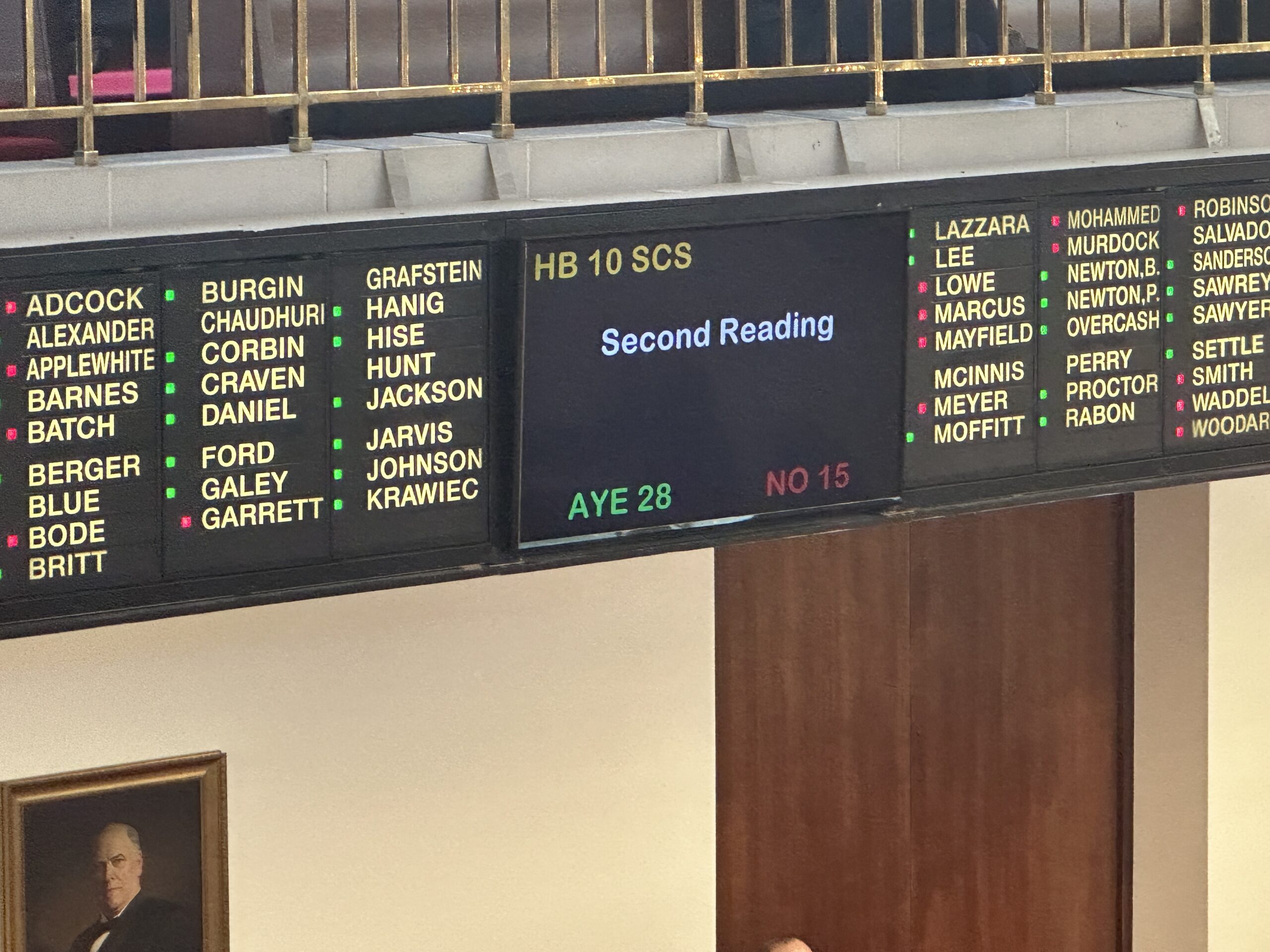
Anti-Immigrant Bill HB10 Passes in the Senate and Is Close to Becoming Law
Raleigh. The anti-immigrant bill HB10, which would force all North Carolina sheriffs to collaborate with Immigration and Customs Enforcement (ICE), is very close to becoming law after being passed by the state Senate on Thursday morning.
The bill passed the full Senate on Thursday, May 2nd with a 28-16 vote and was sent back to the House of Representatives to confirm amendments added by Senate committees this week.
It’s the third time the Republican majority has tried passing legislation to force all sheriffs in the State to cooperate with ICE since 2019. Two similar bills have been vetoed by Gov. Roy Cooper in the past five years.
However, Republicans now have a supermajority that means they have the power to override the Governor’s veto, and so HB10 is expected to become law this time, unlike the past vetoed bills.
What would HB10 change?
The bill requires state sheriffs and jail administrators to notify ICE to determine the legal status of detainees for certain felonies such as homicide, rape, or human trafficking, in addition to certain misdemeanors such as assault and violating a domestic violence protective order.
But the biggest change this law would bring is that local authorities would have to comply with all detainers issued by ICE and hold suspects for 48 hours — even if they posted bail or a judge dismissed charges against them — so that federal agents can take them into custody.
During the Senate debate on Thursday morning, Republican Sen. Danny Britt, who represents Robeson County, said the goal of HB10 is to remove “violent criminals” from the state and not immigrant hard workers who are important to the state’s workforce, especially in construction and agriculture.
However, sheriffs in several urban counties such as Mecklenburg, Durham, and Wake, along with immigrant advocacy organizations and community leaders, have spoken out this week against HB10 because they believe, among the several negative consequences this bill would have is to weaken the immigrant community’s trust in law enforcement.
One of their arguments is that immigrants and their families would stop reporting crimes and cooperating with police investigations for fear of being deported, as happened with the federal 287g program that, until 2018, was active in jails in several counties, including Wake and Mecklenburg.

Debate in the Senate
During the Senate debate, Democratic Senator Mujtaba Mohammed, who represents Mecklenburg, tried unsuccessfully to introduce an amendment requiring local authorities to notify crime victims or their families before turning a suspect over to ICE to ensure justice.
“This bill, in its current form, does allow criminal defendants to escape criminal prosecution in our state courts and avoid facing their victim in our state courts. What kind of dignity does that afford victims of violent crime offenses? ” Mohmmed said.
Senator Britt, however, asked the floor not to consider this amendment and instead vote for the bill to end “sanctuary policies” in the state.
“It’s a very simple choice. You can vote for public safety or you can vote to continue the sanctuary policies that his sheriff employs to release violent offenders back into the community,” Britt said.
The Republican majority ultimately voted against the amendment and in favor of HB10 which will now return to the House for a final vote.
